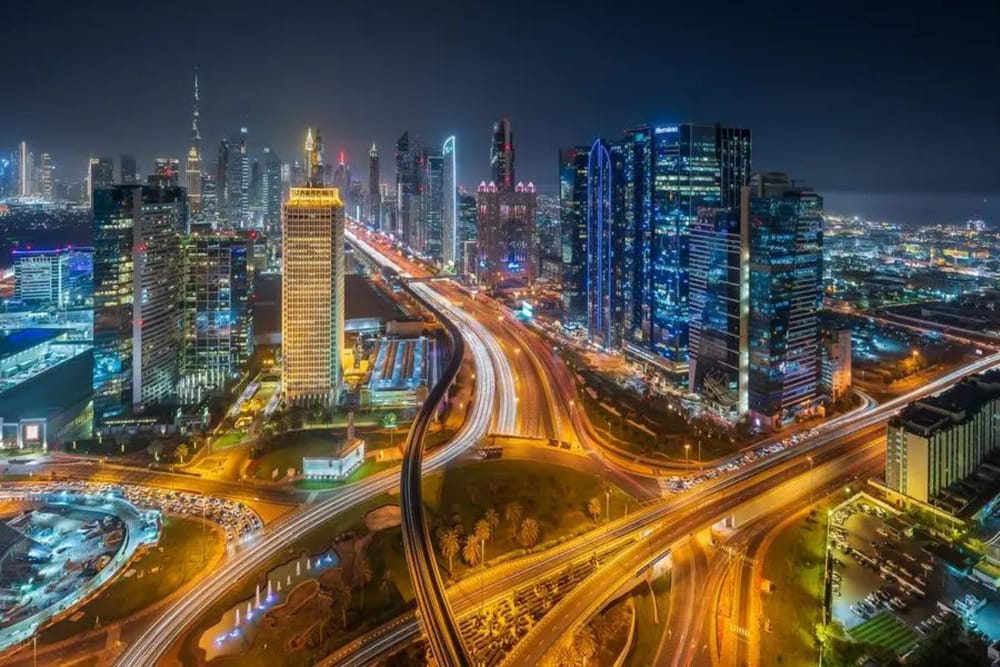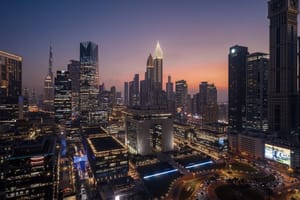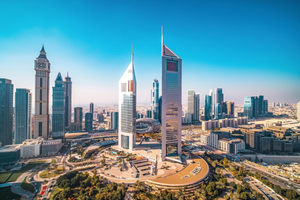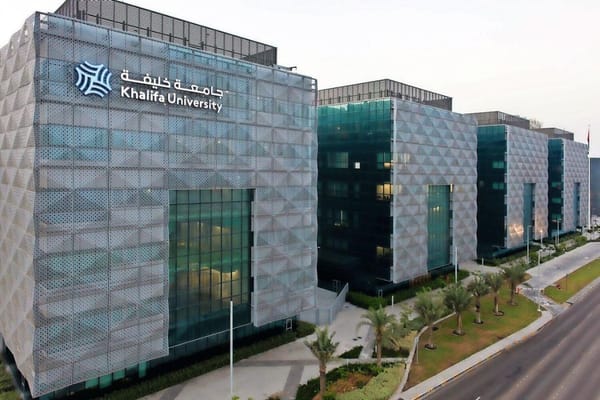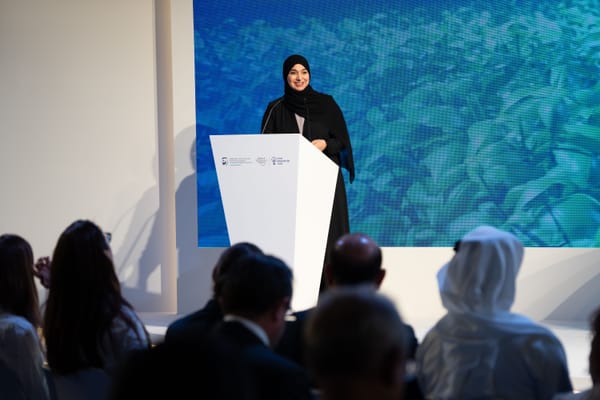The latest insights from JLL’s UAE Real Estate Market Overview for Q1 2024 highlight a positive investor sentiment driving significant activity across various sectors in the UAE. Dubai's residential market began 2024 on a high note, with approximately 10,000 units completed in Q1, increasing the total stock to 729,000 units. An additional 25,000 units are expected to be delivered by year-end, with prime areas like MBR City and Business Bay at the forefront.
In Abu Dhabi, the market saw the completion of 1,600 residential units, with another 6,000 anticipated by the end of the year. Faraz Ahmed, research director at JLL MENA, reported a 20% increase in residential sales transactions in Dubai and a 17% rise in Abu Dhabi. However, rising land prices and construction costs are prompting developers to focus on secondary locations and properties within the AED 2 million price range to enable buyers to qualify for the Golden Visa.
Both Dubai and Abu Dhabi experienced substantial annual increases in sale prices and rentals, particularly for apartments. Dubai’s apartment rentals surged by 22%, outpacing villa rentals at 14%. In Abu Dhabi, villa sale prices saw a 9% year-on-year increase.
UAE hospitality growth boosts demand
Dubai's hospitality sector saw the addition of nearly 2,000 new hotel keys in Q1 2024, with upscale properties in areas like Business Bay leading the way. The emirate is set to welcome another 5,000 keys by the end of the year. In Abu Dhabi, the hotel supply remained steady, with an additional 500 keys expected.
Dubai's tourism sector experienced an 18% increase in visitors compared to the previous year, maintaining a 5% growth in average daily rates. Abu Dhabi's hotel performance was equally strong, with an 8% year-on-year increase in ADR (average daily rate).
Steady demand despite limited supply in office segment
Dubai’s office market saw limited new deliveries, with approximately 17,000 sqm of space added in Q1 2024. Despite this, strong demand from corporate occupiers, particularly for fitted spaces, persisted. Abu Dhabi's office market remained stable, with 79,000 sqm of new space expected throughout the year.
Rental rates surged in both cities, with Grade A rents in Dubai’s CBD increasing by 22% year-on-year, while Abu Dhabi experienced a 14% rise in average city-wide rents. Limited space availability in prime malls is shifting the focus towards smaller community malls in both Dubai and Abu Dhabi. Property owners are investing in refurbishments and introducing experiential concepts to enhance the retail landscape.
In Q1 2024, approximately 12,000 sqm of new retail space was added in Dubai, with an additional 104,000 sqm anticipated by the end of the year.
Industrial sector shows robust growth
The UAE's industrial sector experienced significant growth, driven by the new India-UAE trade agreement and increasing e-commerce activities. Warehouse rents in key areas surged, with JAFZA seeing a notable 26% annual increase, averaging AED 365 per sqm per annum.
In response to the rising demand, developers are addressing supply shortages through strategic collaborations. For example, Dubai South and Aldar have partnered to develop a Grade A build-to-lease logistics facility in Dubai South’s Logistics District, covering approximately 24,000 sqm, with completion expected by year-end.
Abu Dhabi’s industrial sector also saw strong demand in Q1 2024, bolstered by non-oil sector growth and expanding e-commerce activities. Rental rates in major submarkets rose due to spillover demand from Dubai's limited Grade A spaces. Industrial areas like Khalifa Economic Zones Abu Dhabi (KEZAD) and the Industrial City of Abu Dhabi (ICAD) attracted significant tenant interest. Warehouse rents in ICAD increased by 6% annually to AED 370 per sqm per annum, while KEZAD saw a 5% rise, reaching AED 400 per sqm per annum, positioning KEZAD favorably for tenants seeking high-quality warehouse facilities.
News Source: Gulf Business
